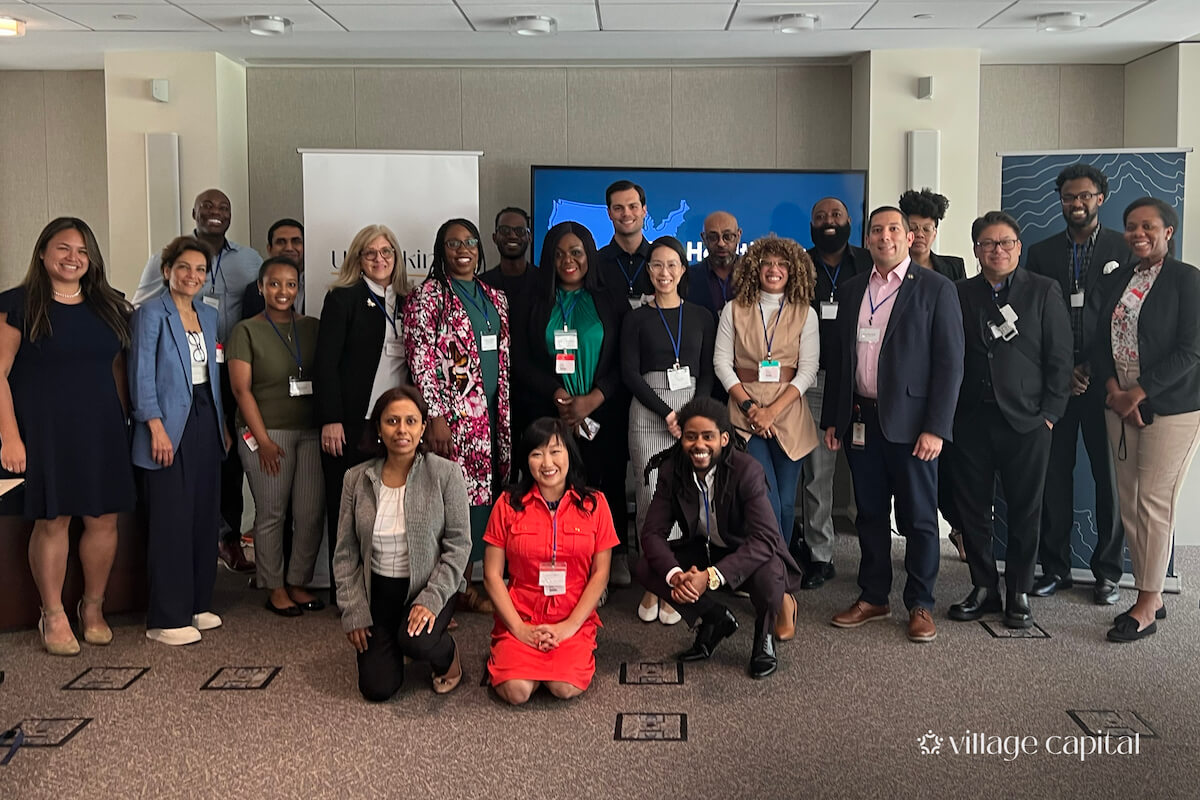The demise of Silicon Valley Bank represents an opportunity for business-financing alternatives. That’s especially true for models that serve women and business owners of color, who have long faced systemic inequities within the business financing ecosystem.
In recent years, funds, often led by people of color, have grown to serve diverse founders intentionally and provide non-dilutive capital, opportunities to create worker owners and other ways to address racial wealth gaps through entrepreneurship.
“We’re on a mission to create an inclusive economy, and we’re doing that through non-dilutive financing,” says Founders First Capital Partner CEO Kim Folsom. “Diverse founders struggle with obtaining traditional bank financing or connecting with venture capitalists or angel investors who would be interested in funding their businesses because they’re not the next Facebook or Google.”
The rise of VC alternatives for diverse founders is the subject of “Innovating for Equity in an Uncertain Economy: State of Social Justice Impact Investing,” a Founders First webinar on Thursday, Apr. 13, co-hosted by ImpactAlpha, Mission Investors Exchange and Rockefeller Philanthropy Advisors.
On the agenda are fund managers including Todd Leverette of Apis & Heritage, Allegra Stennett of New Majority Capital and Kim from Founders First, as well as catalytic investors, Cate Costa of JPMorgan Chase, John Balbach of MacArthur Foundation, Susie Lee of Kellogg Foundation and Living Cities’ Thaddeus Fair.
Unfair playing field
Silicon Valley Bank, one of the most prominent technology-focused banks in the United States, was known for its commitment to Black and Latine founders.
“We have a responsibility and a unique opportunity to ensure women and people of underrepresented groups can access, contribute to and benefit from the enormous potential of the innovation economy,” now ex-CEO of SVB Greg Becker said in January.
Taking a broader view, the impact of bias in banking on diverse business owners is significant. BIPOC founders are more likely to face loan rejections, higher interest rates, and limited access to financial services. Such disparities can impede the ability of founders to initiate, expand, and develop their businesses, and can also result in increased debt and financial instability.
A 2021 study from Gusto found that 49% of new business owners were women (up 75% from 2019), 10% were Latine (up a quarter from 2019) and almost 10% were Black (up 300% from 2019). Despite that significant diversification in founder identities, another study led by the Stanford Graduate School of Business, in partnership with Latino Business Action Network, showed that white business owners were more likely to receive requested funding from traditional banks compared to their Latine business owner counterparts, especially when the amount requested is above $50,000.
According to the previous study, the diverse owners were the ones most in need of funds, with one-third of Black entrepreneurs and one-quarter of Latine entrepreneurs needing to take a side job in order to cover business expenses. Other studies have shown similar trends around women-owned companies being underbanked.
VC alternatives
In the wake of the fallout, impact lenders for diverse-led businesses, such as Founders First Capital Partners, Apis & Heritage and New Majority Capital are stepping forward to fill the gap.
Founders First’s flexible form of revenue-based financing requires cash-generating service-based businesses to pay investors a percentage of their top-line sales, rather than give up equity, up to a predetermined cap.
Apis & Heritage finances employee ownership conversions at businesses with large workforces of color transition. And New Majority Capital provides a mix of acquisition funding and revenue-based financing to help more women and people of color become business owners.
Each uses creative capital models to grow diverse-led companies without the traditional debt or equity playbooks.
Catalytic investors are stepping up to fund this new generation of managers. Founders First closed an $11 million in 2021 with equity financing from the Rockefeller, Kellogg, Surdna and Kauffman foundations, Melinda Gates’ Pivotal Ventures, Spring Point Partners, and Arc Chicago, a fund backed by MacArthur Foundation.
Apis & Heritage’s Legacy Fund I included funding from Rockefeller Foundation’s Zero Gap Fund and the Ford, Skoll, Robert Wood Johnson, and Kellogg foundations, along with Capricorn Investments, Gary Community Investments.
And RSF Social Finance is leading New Majority’s community round.
Mitigating banking risks
Many technology startups had all their banking services with Silicon Valley Bank, likely at the advice of their investors, and when it suddenly shut down, they were left without access to their funds. This situation could have been helped if these companies had diversified their banking relationships and had other options available to them.
This is especially true for diverse-led businesses, which often don’t have the network or access to capital that their non-diverse counterparts do.
Immediately after the fall of Silicon Valley Bank, for example, financial experts and others suggested that tech entrepreneurs seek revenue-based financing as a way to get growth capital while funds were frozen without giving up equity.
Revenue-based financing is one way businesses can access growth capital when funds are frozen. Working with an investor-backed firm like Founders First Capital Partners to get revenue-based financing means that capital won’t cost you additional equity. And the impact lender also doles out advice and networking opportunities, two of the attractive qualities that brought entrepreneurs to SVB in the first place.
Other revenue-based financing firms exist in the space though not all are created equal, meaning some write checks only, some offer support and others are MCAs masquerading as revenue-based financing.
Impact opportunities
The unfortunate demise of Silicon Valley Bank shines a spotlight on the racial inequities in the current financial landscape and the opportunities, though few and far between, that still exist for diverse founders. It also serves as a reminder of the importance of not relying too heavily on one partner, institution or channel.
As with most things, all hope is not lost. It’s an opportunity for impact investors to advance a more inclusive economy.
Tracy Fuga is marketing director at Founders First Capital Partners.











